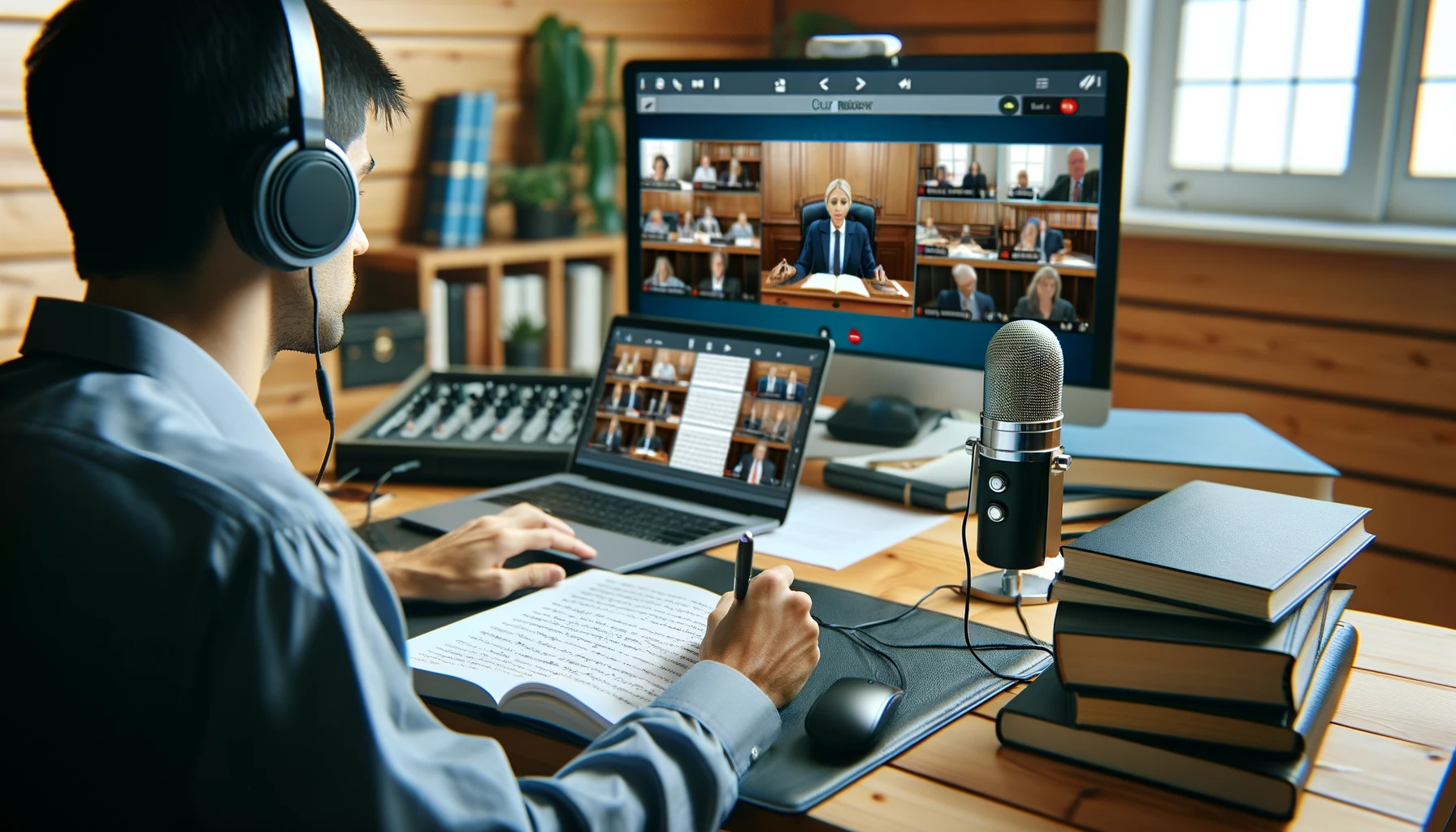The legal landscape has undergone a significant transformation, especially in the wake of the COVID-19 pandemic. Court reporting in Seattle has had to adapt swiftly to the rise of remote legal proceedings. This article explores the challenges and opportunities presented by remote depositions, virtual hearings, and other online legal processes. It also highlights the tools and technologies that have enabled court reporters to maintain accuracy and efficiency while working remotely.
Impact of the COVID-19 Pandemic on Court Reporting
The pandemic forced many legal proceedings to shift from physical courtrooms to virtual settings. Court reporters in Seattle had to quickly adapt to this new reality, mastering the use of various online platforms to continue providing their essential services. Despite initial challenges, such as technical glitches and ensuring the security of sensitive information, court reporters have demonstrated remarkable resilience and adaptability.
Tools and Technologies Facilitating Remote Court Reporting
Several tools and technologies have played a crucial role in the transition to remote legal proceedings. Video conferencing platforms like Zoom and Microsoft Teams have become standard for virtual depositions and hearings. Real-time transcription software allows court reporters to provide live transcripts during remote proceedings, ensuring that all parties have immediate access to the transcript.
Challenges Faced by Court Reporters in Remote Settings
Working remotely has presented unique challenges for court reporters. Ensuring clear audio quality, dealing with unstable internet connections, and maintaining the confidentiality of legal proceedings are just a few of the issues they face. However, with robust training and the implementation of best practices, court reporters have successfully navigated these obstacles.
Success Stories of Remote Court Reporting in Seattle
There have been numerous success stories of court reporters in Seattle managing remote proceedings effectively. For instance, in a complex multi-party litigation case, a court reporter was able to provide real-time transcription for a virtual hearing involving participants from different time zones. The seamless execution of this remote hearing underscored the capabilities and adaptability of modern court reporting.
Conclusion
The evolution of court reporting in Seattle highlights the profession’s resilience and adaptability in the face of unprecedented challenges. As remote legal proceedings become more commonplace, court reporters will continue to play a critical role in ensuring the accuracy and integrity of legal documentation.
